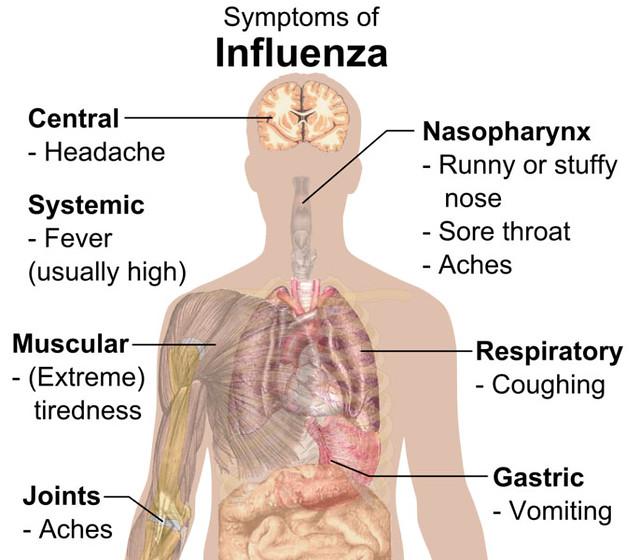ESCAPING THE NARCISSIST
Are you trapped in a toxic relationship? It's time to reclaim your life and find healing. ESCAPING THE NARCISSIST: HOW TO HEAL AND RECOVER FROM NARCISSISTIC ABUSE IN RELATIONSHIPS is your guide to breaking free and starting your journey towards recovery.
Don't let the pain control you any longer. Take the first step today and discover the strategies to overcome emotional abuse and rebuild your life. You deserve happiness and peace.
Start Your Healing Journey TodayIn a world where the embrace of unconditional motherly love is a given, there exists a shadowy realm concealed beneath the surface. A realm where maternal affection transforms into an all-consuming force, driven by self-absorption and unrelenting narcissism. This article delves into uncharted waters, peering into the unspoken tribulations that daughters of narcissistic mothers silently endure. Through this exploration, we seek to shed light on the ten enigmatic symptoms that haunt these daughters, unwaveringly navigating the stormy seas of their tangled emotions. Embrace the neutral territory as we embark on a journey to uncover the secrets that lie behind closed doors, decipher the intricate patterns of maternal narcissism, and ultimately understand the toll it takes on its unsuspecting victims.
The Hidden Psychological Impact: Identifying the Symptoms of Daughters of Narcissistic Mothers
Growing up with a narcissistic mother can leave deep emotional scars that often go unnoticed. While the external façade of a narcissistic mother may appear flawless, the impact on her daughters can be profound. By recognizing the symptoms, we can begin to heal and regain control of our lives. Here are 10 common symptoms experienced by daughters of narcissistic mothers:
- Constant need for validation: Daughters of narcissistic mothers often find themselves seeking approval and validation from others, constantly doubting their own worth.
- Severe self-doubt: Despite their accomplishments, these daughters struggle with a persistent feeling of inadequacy, as their mothers have conditioned them to believe they can never measure up.
- Difficulty setting boundaries: Growing up, these daughters were not given the freedom to assert their own needs and desires. As a result, they often struggle to set healthy boundaries in relationships and find it challenging to say no.
- Deep-seated guilt: Narcissistic mothers excel at manipulating their daughters into feeling guilty for asserting their own needs or desires. This guilt becomes ingrained and serves as a constant weight on their psyche.
| Symptom | Description |
|---|---|
| Imposter syndrome | Daughters of narcissistic mothers often struggle with feelings of inadequacy and fear being exposed as a fraud, despite their accomplishments. |
| Chronic people-pleasing | To gain approval from their mothers, these daughters develop a habit of constantly putting others’ needs before their own, often at the expense of their own well-being. |
Difficulty expressing emotions: Growing up in an environment where their emotions were dismissed or manipulated, these daughters often struggle to recognize and express their own feelings. They may bury their emotions or disconnect from them entirely.
Lack of identity: Narcissistic mothers often see their daughters as mere extensions of themselves, leaving little room for the development of a unique identity. These daughters may struggle to define who they are, constantly feeling lost or disconnected.
- Hypervigilance: Due to the unpredictable nature of their mothers, daughters of narcissistic mothers develop heightened awareness and vigilance, constantly on guard for any signs of criticism or rejection.
- Fear of abandonment: Narcissistic mothers often use the threat of abandonment as a means of control. As a result, these daughters may have an intense fear of being left alone or rejected.
Recognizing these symptoms is an essential step towards healing for daughters of narcissistic mothers. By understanding the impact of our upbringing, we can begin to reclaim our lives and build healthy, authentic relationships.

Escaping the Invisible Emotional Shackles: Insight into the Common Behavioral Patterns
When it comes to understanding the impact of growing up with a narcissistic mother, it’s crucial to recognize the common behavioral patterns that can shape the lives of daughters. These patterns manifest in various ways, often leaving lasting emotional scars and invisible shackles that can be difficult to escape. By shedding light on these symptoms, we can gain insight and start the healing process, empowering ourselves to break free from the cycle.
We’ve compiled a list of 10 common symptoms that daughters of narcissistic mothers may exhibit as a result of their upbringing:
- Low self-esteem: Constant criticism and belittling from the narcissistic mother can lead to a deep-seated lack of self-worth.
- Perfectionism: Daughters may develop an intense drive to please others, striving for an unattainable level of perfection to gain approval.
- Emotional instability: Growing up with a mother who constantly shifted between emotional extremes can leave daughters struggling to regulate their own emotions.
- People-pleasing tendencies: A deep desire to avoid conflict and maintain harmony may lead daughters to prioritize the needs of others at the expense of their own well-being.
…
| Table Header 1 | Table Header 2 |
|---|---|
| Table Data 1 | Table Data 2 |
| Table Data 3 | Table Data 4 |
…

Reclaiming Personal Power: Effective Strategies for Healing and Recovery
The relationship between a daughter and her mother is meant to be one of love, support, and nurturing. However, for daughters of narcissistic mothers, this experience can be significantly different. Growing up with a narcissistic mother can often lead to a myriad of emotional, psychological, and even physical challenges that can affect a woman’s sense of self and personal power.
Here are 10 symptoms that daughters of narcissistic mothers may commonly experience:
- 1. Chronic self-doubt and low self-esteem
- 2. A constant need for validation and approval from others
- 3. Difficulty setting boundaries and asserting themselves
- 4. Fear of abandonment and rejection in relationships
- 5. An overwhelming sense of guilt and self-blame
- 6. Perfectionism and a fear of making mistakes
- 7. Difficulty trusting others and forming meaningful connections
- 8. Feelings of emptiness and a lack of purpose
- 9. Overwhelming anxiety and hypervigilance
- 10. Difficulty expressing and processing emotions
These symptoms can be incredibly challenging to overcome, but it is possible to reclaim your personal power and heal from the effects of a narcissistic mother. By engaging in strategies such as therapy, self-care, and self-reflection, daughters of narcissistic mothers can begin the journey towards healing and recovery. Remember, you are not alone, and there is hope for a brighter future filled with self-love, authenticity, and personal empowerment.

Unmasking the Authentic Self: Nurturing Self-Esteem and Building Strong Boundaries
As daughters of narcissistic mothers, it can be challenging to recognize and understand the impact such relationships have on our lives. Often, we grow up feeling a sense of inadequacy and confusion, unaware of the underlying reasons for our emotional struggles. Unmasking the authentic self becomes a crucial step in reclaiming our power and finding a sense of fulfillment.
Here are 10 common symptoms that daughters of narcissistic mothers may experience:
- Constant self-doubt and feelings of unworthiness.
- Difficulty establishing and maintaining healthy boundaries.
- Strong need for validation and approval from others.
- Fear of confrontation and conflict, often avoiding expressing true feelings.
- Chronic self-criticism and perfectionism.
- Feeling responsible for the emotions and well-being of others.
- Tendency to attract toxic or narcissistic relationships.
- Prone to anxiety, depression, and low self-esteem.
- Lack of a clear sense of self and personal identity.
- Doubt in one’s own strengths and abilities.
Recognizing these symptoms is the first step towards self-discovery and healing. It’s important to remember that you are not alone, and with nurturing self-esteem and building strong boundaries, it is possible to break free from the cycle and cultivate a life filled with self-acceptance, love, and authenticity.
In Retrospect
As we bring this journey of self-discovery to a close, we hope you have found solace and empathy within the realms of this article. The intricate tapestry of a mother-daughter relationship, oftentimes a source of profound love and nurturing, can at times reveal hidden complexities. Today, we have traversed the realm of daughters who have encountered the enigma of a narcissistic mother.
Whilst our exploration of these ten symptoms may have shed light on your own experiences, it is vital to remember that this is merely a stepping stone towards healing and personal growth. The purpose of our investigation was not to label or condemn, but rather to offer a compass, guiding you towards understanding and acceptance.
In the face of narcissism, it is not uncommon for daughters to feel suffocated, their very essence overshadowed by the ego of their maternal figure. Yet, dear reader, you have shown resilience by seeking knowledge and truth, breaking the chains that may have bound you in self-doubt. Acknowledge the strength within you, for it is through this strength that you begin to forge your own path, independent of the expectations and manipulations that have haunted your past.
Remember, dear daughters, that you are not defined solely by the shadow of your mother’s narcissism. You possess an infinite capacity for growth, healing, and self-love. Surround yourself with understanding souls who can provide the support and empathy you deserve. Embrace the journey of self-discovery, as it will unlock the transformative power needed to reclaim your individuality.
Though the path before you may feel daunting, remember that you are not alone. Countless others have walked, and continue to walk, alongside you on this quest for emotional well-being. Extend your hand, and you will find a sisterhood of shared experiences, ready to embrace you with open arms.
Therefore, let us bid adieu to the ten symptoms that have haunted our thoughts, releasing them into the ether. Embrace the freedom of knowledge and self-awareness, for it is within this realm that true healing flourishes, unburdening the soul and illuminating the darkest corners of our existence.
As we part ways, dear reader, we urge you to nurture your spirit, cultivating a garden of self-love, resilience, and authenticity. Remember, you are not mere reflections of your mother—it is your own vibrant light that shall shine through, illuminating the world with your unique brilliance. May your journey be filled with serenity, strength, and a renewed sense of self, as you embrace the magnificent woman you are destined to become.

